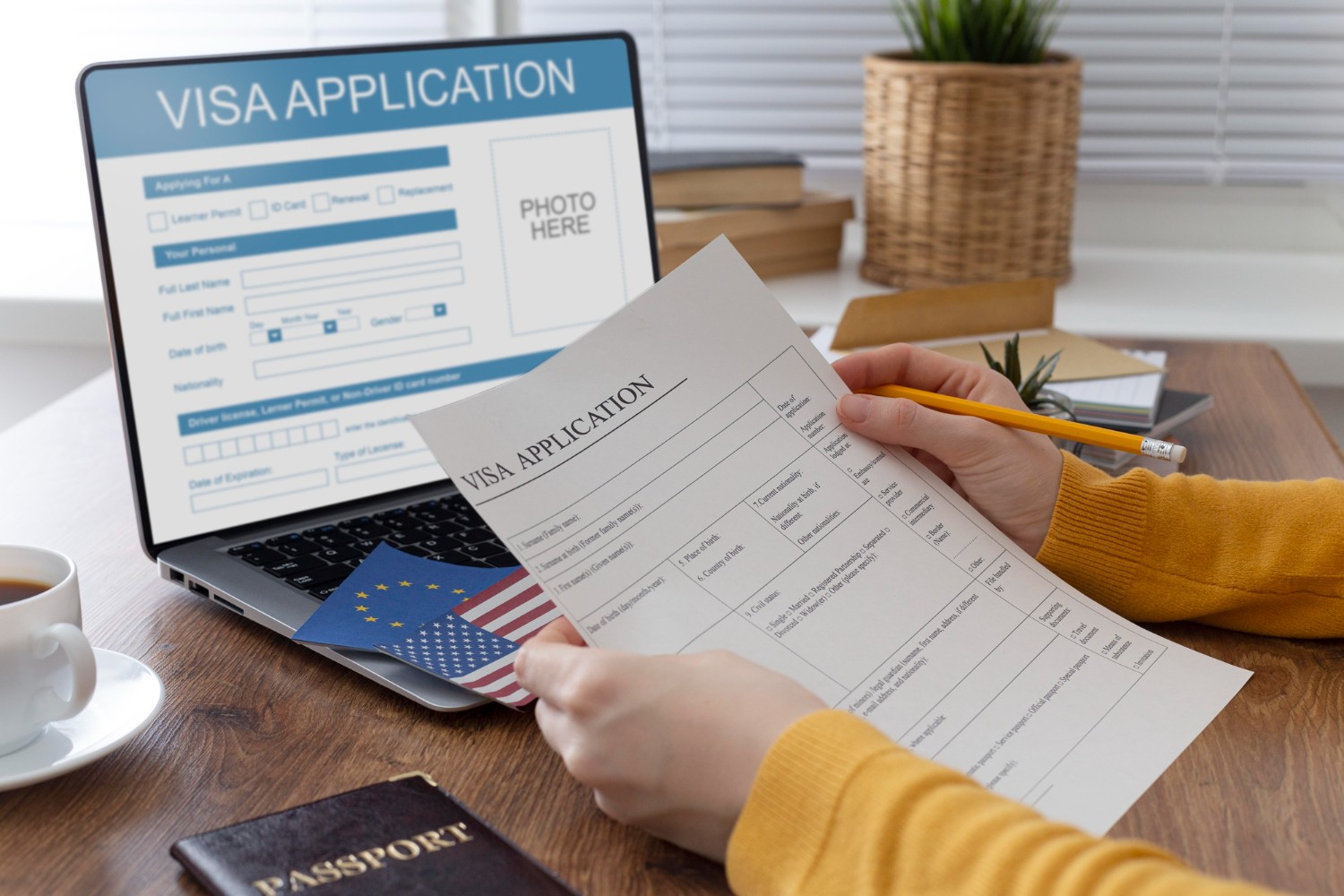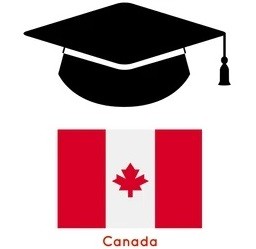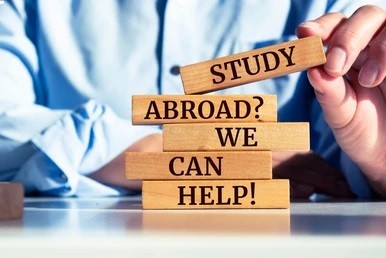How to Improve Your Communication Skills For Abroad Studies

The primary means of human communication is language. The languages used in various countries or regions differ. Since most people speak English as their first, second, or third language, it is regarded as a global language. Similar to this, there are almost 7000 languages spoken in the world, each with unique qualities and specializations. You may have the opportunity to meet individuals speaking their original tongue who come from various geographical backgrounds while you are in a foreign country. Nonetheless, there will be a common language of communication in the nation where you are pursuing your higher education. So, in order to survive in that country, you ought to master that language.
One of the numerous advantages of studying abroad is the chance to develop your language abilities. Although learning a second language can take years, studying abroad serves as one of the most efficient and simple ways to advance your skills. You'll be astounded at how quickly you pick up new vocabulary, hone your listening comprehension, master a new accent, and understand grammar rules. The benefits of learning a second language are numerous. It will make your study abroad experience even more rewarding and ease your transition to life outside of the classroom. Not to mention the plethora of global employment options it can present itself with once you graduate.
Tips To Improve Your Language Competence
You can encounter some circumstances that call for greater language competency when relocating abroad to pursue higher education. Being cautious is essential to avoid getting caught in such situations. Hence, even after arriving at your destination, you must keep working on enhancing your language skills in addition to getting ready for language-level exams in your home country. Here are some key pointers to assist you in quickly becoming fluent in your dream language.
Start Beforehand
The most crucial thing to keep in mind when trying to get better at a language is that you should begin your language-learning process well in advance of your international trip. Research about the language that the country speaks officially. This will be of tremendous assistance to you in surviving in a foreign nation. Try to become conversant with the fundamentals of the language used in the country where you intend to relocate. Developing your language abilities while studying abroad starts with this, which is also one of the most helpful suggestions. Gaining a basic understanding of the language will enable you to quickly grasp it completely.
Utilise Every Opportunity To Speak
Practice using your newly acquired language abilities under daily circumstances without hesitation. Every interaction is an opportunity to improve your speaking skills, whether you're ordering your favourite meal at a neighbourhood restaurant, striking up a discussion with a classmate, or even haggling at the neighbourhood market. Accept the odd slip, shrug off miscommunications, and acknowledge every little accomplishment, all of these things are necessary for learning.
Read
Reading expands your vocabulary. Possessing a large vocabulary is always advantageous. You will find this helpful in a variety of circumstances. People may use words that are new to you when they speak, which can make it difficult to follow along. But you might find it easier to follow them if you expand your vocabulary. Your writing abilities will also benefit from this. You will become acquainted with the words and their personalities as you read. This will assist you in writing without errors. Make an effort to read as much as you can in the language of your choice. Additionally, make an effort to learn new phrases that you think would be helpful. Books, newspapers, and even online content can be read. To put it briefly, reading is a helpful strategy for enhancing your language proficiency while studying overseas.
Also Read: Tips For Overcoming Language Barriers For Indian Students Studying Abroad
Participate In Study Groups
Join study groups with your peers to enhance your academic endeavours and language proficiency. You might even meet some new friends as a result of this. Encourage candid conversations and debates in your study group. Speaking the target language requires you to think critically and communicate more clearly while conveying and upholding your ideas. Ask for and offer comments from your group members. Peer corrections and constructive criticism serve to create a conducive learning environment and point out areas that need work.
Listen To Songs And Sing Along
Turn your study sessions into musical marathons by playing music in the language you are attempting to learn. Sing along, pay attention to the words, and do your best to decipher what's concealed there. Not only can music help you pronounce words more accurately, but it also helps you remember them melodically and engagingly. Because song lyrics are typically sung rather than written in a language, listening to music will also help you get a better accent.
Watch Movies
It's impossible to ignore the significance of watching films when discussing strategies for enhancing your language abilities while studying overseas. There is no better way to learn a language than to watch films or videos in the language you want to learn. When watching a foreign-language movie for the first time, you can use the subtitles to help you understand. Nevertheless, if you wish to get better at the language, don't always adhere to the subtitle reading system. You can also try watching films without subtitles to see how well you understand the language.
Stay With Natives
While visiting another country, attempt to arrange lodging with natives. This may resemble a homestay, or you could share your space with some natives. You will be exposed to the language to a considerable extent in this way. You might seek their assistance in improving your language abilities and ask them to correct you. They will be of great assistance to you in all of your endeavours. This is a result of your lack of familiarity with the local area and other facets of the country as you are a visitor. They are able to assist you in all these areas. They could serve as your guide.
Write Down New Words And Phrases
You may find it hard to recall some phrases, therefore always have a notebook with you so you may scribble down important or difficult phrases for later use. Saying something incorrectly can become accustomed to you, and it can be challenging to break the habit. You can maintain your memory of the proper structure and be reminded of it by writing down the appropriate phrase.
Download Apps With Language Activities
Let's embrace tech-savvy education as learning a language is now as easy as tapping a screen in the digital age. It's simple to customise your learning experience with certain programmes, as they frequently accommodate varying competency levels. App developers have created a variety of games, tests, and riddles to add excitement to language learning. These little apps can be used to turn your normal commute or downtime into useful language sessions.
Never Give Up
Though it might initially appear daunting, learning a new language doesn't have to be that way. You may quickly and effectively become proficient in any current foreign language with the correct resources and techniques. The secret is to persevere and maintain your motivation. Recall that making errors is a necessary part of learning, so don't be scared to do so. You may become proficient in any language with sufficient practice and persistence.
Join A Language Exchange Programme
You can improve your language abilities with native speakers by participating in a language exchange programme. With the help of these programmes, you can practise speaking with a local who is also studying your language. Along with developing your language abilities, you'll meet new people and gain more knowledge about the way of life in the area.
Join A Club Or Association
To learn a language, you must first interact with others. You cannot improve your language skills if you do not converse with others. Clubs and associations are the most effective ways to interact with others. Both inside and outside of your educational institution, there will be a variety of clubs and organisations. Join as many of these groups as you can to expand your social circle. These organisations may also set up events where you can meet other people. You will have the opportunity to expand your network and get to know new individuals through these programmes.
Also Read: What are the Preparations You Take Before Your IELTS Test?
Meet International Students
Get to know international students to make connections with your new environment easier. Speaking casually with native speakers is one of the most organic methods to pick up new vocabulary. Look for foreign students at local events or on the campus of your university. Speaking with them in person sharpens your language abilities and increases your awareness of their culture. It is a dual benefit since it transforms language acquisition from a solitary endeavor into a vibrant, rich communication practice.
Conclusion
Proficiency in language is essential for the study abroad program, scholastic achievement, and professional prospects. When preparing to study abroad, students must take into account all facets of their language abilities, including proficiency, cultural awareness, and academic language. Acquiring proficient language skills can be very beneficial for academic and professional endeavors, in addition to improving the study abroad experience overall. Therefore, as part of their preparation for studying abroad, students are urged to make language acquisition a priority and look for opportunities to improve and advance their language proficiency.
Globor is an online platform that provides information about the various study abroad consultants to help students study abroad. They serve as a comprehensive directory of immigration consultants in India, assist in narrowing down potential colleges and course information, and enable students to select and contact the most suitable consultant for their specific needs. For more information feel free to contact us now!
Related Blog

Why study Hospitality Management in the UK?
 (1)664aed680a8e9.png)
10 Easy Steps to Get a Study Abroad Scholarship
 (1)66437fcf8db2c.png)
Self-Application or Study Abroad Consultant: Which is Better?
6643606f06693.png)
What are the potential challenges of studying abroad, and how to overcome them?
6628d683c5c4c.png)
Budgeting Tips for Studying in Australia

How do I apply for a Master's at Canadian universities?

How to Prepare for a Canada Student Visa Interview?

A Comprehensive Guide To Applying For A PG Work Permit In Canada
65a670c6772ef.jpg)
UK Student Visa: New Rules from 2024 Applications

Top Colleges In Canada For MBA Without GMAT

Part-Time Jobs in Canada

Preparing Invitation Letter For Canada Visa: All You Need To Know

Cost Of Studying For Indian Students In The UK

Visa requirements for Indian students to study abroad in the UK

GRE Accepting Universities In The USA

Public Vs Private Universities - Which Is Better?

How To Apply Student Visa For The USA?
6505864a3be98.jpg)
Best Interior Design Programs In The UK
64fee13f97d75.jpg)
Difference Between SDS and Non-SDS Visa Applications
64f5f29debd74.jpeg)
Reasons Why You Should Study Hospitality Management In The UK?
64f09d22881c9.jpg)
What Are The Short-Term Study Abroad Programs For Indian Students?

How do I write an effective SOP for UK Universities to get visa assistance?
64e32f0ff2ec4.jpg)
Cost Of Studying In Canada For Indian Students
64df3a0b57710.jpg)
How to Find Student Accommodation in France?
64da4a92186d6.png)
What are the Reasons Students Choose Nursing as a Career Abroad?
64d5f2456ddca.jpg)
How to Find Paid Internships in Canada for Indian Students in 2023?

Things were a Culture Shock For an Indian Students in the UK
64cce0d0e81c5.jpg)
Tips For Overcoming Language Barriers For Indian Students Studying Abroad

How Can Internship Abroad Expand Your Career Horizon?

How to Find Student Accommodation for Indian Students in a Foreign Country

Which are the Main Scholarships by Australian Universities for Indian Students?

How to Prepare for Duolingo English Test?

What are the Preparations You Take Before Your IELTS Test?

How to Get a Graduate Assistantship in the USA to Students?

What are the Safety Tips for Indian Students Studying Abroad?

What are the Tips for Winning an MBA Scholarship in the UK?

How to Get Eight Bands in IELTS Speaking?

Which are the Leading Universities in the UK for Indian Students?

How do Indian Students Get into Law Universities in Canada?

What are the Trending Courses to Study at Universities in Canada?

What are the Different Health Science Courses Available in Canadian Universities?

Studying in the UK vs the US: Which is Better For Students?

Tips for Indian Students to Adjust to a New Culture while Studying Abroad

Jobs and Internship Opportunities for Indian Students while Studying Abroad

How to Choose the Right Course for Study Abroad

Popular Destinations for Indian Students to Studying Abroad

Scholarships and Financial Aid for Indian Students to Studying Abroad

How to Prepare for Standardised Tests like TOEFL and GRE for Studying Abroad

Why is Studying Abroad Good for Your Career?

Things to Consider When Choosing an Overseas Educational Program

How to Manage the Funds for your Study Overseas?

Studying Abroad on a Budget: Tips for Making it Affordable
642d3ed3db028.jpeg)
Scholarships and Funding Opportunities for Indian Students to Study Abroad

Tips for Preparing to Study Abroad: From Application to Departure

Benefits of pursuing an MBA from Canada

Things to Consider Before Choosing a Study Abroad Destination

How much does it cost to study abroad?

How to get a student visa for studying abroad?

How to choose your university to study abroad

Why do Indians prefer to study abroad?

How to get an education loan in India to study abroad?

What are the factors influencing students to study abroad

Top 10 Study Abroad Consultants in Kerala

Most reputed study abroad consultants for UK education

